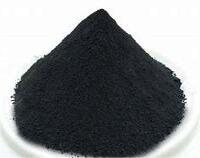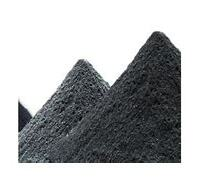1. Introduction
In the past 48 hours, additive manufacturing leaders like GE Additive and EOS have announced expanded production capacity for aerospace-grade titanium powder, responding to surging global demand for lightweight, high-strength components in defense and space sectors. This development underscores titanium powder’s growing strategic importance—and why understanding its varieties, costs, and applications matters more than ever.

Whether you’re an engineer, researcher, or procurement specialist, navigating the world of titanium powder can be complex. From pure titanium powder to advanced alloys like Ti6Al4V (also known as Ti64), and from spherical gas-atomized grades to HDH (Hydride-Dehydride) variants, the options are vast. This guide breaks it all down—types, uses, pricing, and where to buy—so you can make informed decisions.
2. What Is Titanium Powder?
Titanium powder, often referred to as Ti powder, is a fine particulate form of titanium metal or its compounds. It’s produced through various methods, including gas atomization, plasma rotating electrode process (PREP), and the HDH technique. Unlike bulk titanium, powder form enables advanced manufacturing processes like additive manufacturing (3D printing), metal injection molding, and thermal spraying.
It’s important to distinguish between different forms: pure titanium powder is elemental Ti, while TiO2 powder (titanium dioxide) is a white pigment used in paints, sunscreens, and food—not a metal. Similarly, titanium nitride powder, titanium carbide powder, and titanium diboride (TiB2) powder are ceramic compounds with ultra-high hardness and thermal stability, used in cutting tools and wear-resistant coatings.
3. Key Types of Titanium Powder
3.1 Pure and Alloyed Titanium Metal Powder
Pure titanium powder is used in chemical processing and biomedical implants due to its biocompatibility and corrosion resistance. However, most industrial applications rely on titanium alloy powder, especially Ti6Al4V powder (Ti64), which contains 6% aluminum and 4% vanadium. This alloy offers an exceptional strength-to-weight ratio and dominates the aerospace and medical 3D printing markets.

3.2 Production Methods
Gas atomized titanium powder is prized for its spherical shape, which ensures excellent flowability in 3D printers. In contrast, HDH titanium powder is irregular and cheaper, often used in pressing and sintering. Spherical titanium powder is essential for high-quality titanium powder additive manufacturing, while burnt titanium powder coat or titanium dust may refer to byproducts or improperly handled material—not suitable for precision applications.
3.3 Specialty Powders
Beyond standard grades, niche materials like titanium nitride powder (for gold-colored hard coatings), titanium carbide powder (for cutting tools), and titanium diboride powder (TiB2, used in composites and armor) serve high-performance roles. Titanium nanopowder and TiO2 nano powder are used in catalysis and UV-blocking applications. Note: titanium flash powder and titanium-coated diamond powder are highly specialized and often regulated due to reactivity or cost.
4. Titanium Powder Uses
Titanium powder uses span multiple high-tech industries:
- Aerospace: Jet engines, airframes, and landing gear via 3D printing
- Medical: Custom implants and surgical instruments using biocompatible Ti6Al4V powder
- Automotive: Lightweight performance parts
- Energy: Components for hydrogen storage and nuclear reactors
- Defense: Armor and drone components

Additive manufacturing has become the fastest-growing segment, driving demand for titanium 3D printing powder with strict purity and particle size distribution requirements.
5. Pricing and Market Trends
Titanium powder price varies widely based on type, purity, and morphology. As of mid-2024, titanium powder price per kg ranges from $80–$150 for HDH-grade pure titanium powder, while spherical Ti6Al4V powder for 3D printing can cost $300–$600/kg. The titanium powder for 3D printing price reflects stringent quality controls and lower yields in production.
Factors influencing titanium metal powder price include raw material costs (titanium sponge), energy-intensive processing, and geopolitical supply chain constraints. International titanium powder suppliers like VSMPO-AVISMA, Carpenter Technology, and AP&C (a GE Additive company) dominate the market, though smaller vendors offer titanium powder for sale at competitive rates for non-critical applications.
For those looking to buy titanium powder, always verify certifications—especially for medical or aerospace use. Beware of misleading listings: ‘titanium dust’ or ‘burnt titanium powder coat’ are not substitutes for certified metal powder.
6. Related Advanced Metal Powders
While titanium powder leads in lightweight performance, other refractory metal powders serve complementary roles:
- Molybdenum powder (moly powder): Used in high-temp furnaces; molybdenum disulfide powder (MoS2 powder) is a dry lubricant.
- Tungsten powder: Extremely dense (19.3 g/cm³); used in radiation shielding and wear parts. Tungsten carbide powder is common in cutting tools.
These materials—molybdenum metal powder, tungsten metal powder, MoS2 powder price, tungsten powder price per kg—are often compared to titanium but serve different niches. Global Tungsten & Powders Corporation and other suppliers offer fused tungsten carbide and spherical tungsten powder for specialized applications.
7. Choosing a Titanium Powder Supplier
When sourcing titanium powder, consider:
- Certification (AMS, ASTM, ISO)
- Particle size distribution (e.g., 15–45 µm for laser powder bed fusion)
- Oxygen content (<1000 ppm for critical uses)
- Morphology (spherical vs. angular)
Reputable titanium powder suppliers provide full traceability and testing data. Always request samples before bulk orders, especially when comparing titanium powder cost across vendors.
8. Conclusion
Titanium powder is far more than just a raw material—it’s a gateway to next-generation manufacturing. Whether you need Ti64 powder for aerospace 3D printing, pure titanium powder for research, or specialty compounds like titanium diboride, understanding the landscape of types, pricing, and suppliers is crucial. As additive manufacturing scales globally, expect titanium powder to remain at the forefront of innovation—making now the perfect time to get informed.
Our Website founded on October 17, 2012, is a high-tech enterprise committed to the research and development, production, processing, sales and technical services of ceramic relative materials such as Titanium. Our products includes but not limited to Boron Carbide Ceramic Products, Boron Nitride Ceramic Products, Silicon Carbide Ceramic Products, Silicon Nitride Ceramic Products, Zirconium Dioxide Ceramic Products, etc. If you are interested, please feel free to contact us.
